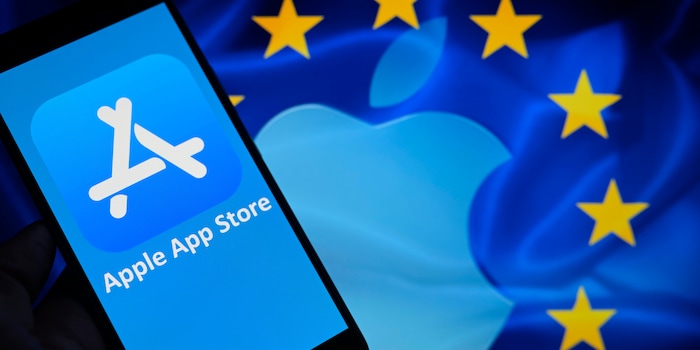
Background information
Digital Markets Act (DMA): what actually is it?
by Florian Bodoky

Brussels has ruled: Apple may not slow down the Digital Markets Act. This marks the beginning of a new phase for the iPhone in Europe. More openness is mandatory.
Apple has tried to defend itself against the central rules of the Digital Markets Act (DMA) with an emergency brake and has failed. The EU Commission has rejected all applications for exemptions. This means that Apple must significantly open up its iPhone ecosystem in Europe. For you as a user, this means: more freedom of choice, but also noticeable changes in everyday life.
Apple had attempted to override five of nine central DMA requirements through so-called «Waiver Requests». The company argued on the grounds of data protection, security and intellectual property. The EU Commission was not convinced. It described Apple's arguments as «generic and hypothetical» and clarified that exceptions are only permitted in «exceptional and unforeseeable circumstances» and these were not present in this case.
The consequence: Apple must adapt future iOS versions. Certain functions such as the automatic pairing of Airpods or the seamless transfer of audio may no longer be reserved exclusively for Apple devices. Suppliers of third-party devices or apps should also be given equivalent access in future.
The Digital Markets Act obliges large platform operators such as Apple to make their systems fairer and more open. In concrete terms, this means:
Apple must grant third-party providers access to functions that previously only its own devices were allowed to use. These include, for example, the display of iPhone notifications on smartwatches or the use of location data and audio functions.
In addition, the DMA also stipulates that Apple must allow alternative app stores and payment methods. For example, users should also be able to install apps outside of the official app store (sideloading). This is intended to reduce dependence on the closed Apple ecosystem.
Instead of immediately implementing all requirements, Apple is refraining from introducing some new functions in the EU. These include live translation for Airpods Pro and iPhone mirroring on the Mac. Apple justifies this with security concerns and warns of a «poorer user experience».
Apple manager Greg Joswiak publicly criticised the EU regulations: they would «undermine the magic» and innovation. Apple sees itself forced to take technical protective measures to secure its own ecosystem.
The dispute is not just theoretical. Back in April, the EU imposed a first DMA fine: 500 million euros against Apple because the company prohibited app suppliers from reaching their customers outside of the app store: a clear violation of the anti-steering principle.
The dispute is not just theoretical.
The Commission found that Apple had set up technical and contractual barriers to block alternative payment methods and external links. This massively restricts users' freedom of choice and hinders competition.
The message is clear: the EU is serious. Even tech companies with enormous market power cannot simply circumvent the rules.
Apple has announced that it will introduce some new functions in Europe at a later date, as implementation in accordance with the DMA is complex. Observers also expect Apple to take legal action against individual requirements. Such proceedings could drag on for years.
For you, this means that the visible changes will come gradually. However, it is clear that iPhones in Europe will become more open in the long term. The coming years will show whether Apple can strike a balance between security, innovation and regulatory requirements.
For iPhone users in Germany and the EU, this means more freedom of choice in the medium term. Accessories such as headphones, smartwatches or speakers from other manufacturers should work more seamlessly. More importantly, there could also be more choice when it comes to apps if alternative app stores and flexible payment methods are permitted.
Apple itself is sceptical. The company warns that too much openness could weaken the security of iPhones. Apple is therefore likely to try to ensure that the new specifications are as technically secure as possible. And without completely relinquishing control of its own ecosystem.
My interests are varied, I just like to enjoy life. Always on the lookout for news about darts, gaming, films and series.
From the latest iPhone to the return of 80s fashion. The editorial team will help you make sense of it all.
Show all